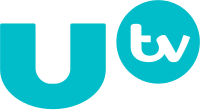Ulster Television
| UTV | |
|---|---|

The UTV logo as of 17 October 2016
|
|
| Launched | 31 October 1959 |
| Network | ITV |
| Owned by | ITV plc |
| Picture format |
576i (SDTV) 1080i (HDTV) |
| Audience share |
ITV Network: 13.27% 0.86% (+1) 2.67% (HD) (November 2015, BARB) |
| Country | United Kingdom |
| Language | English |
| Broadcast area | Northern Ireland |
| Headquarters | Havelock House, Belfast, Northern Ireland |
| Formerly called | Ulster Television (until 4 June 1993) |
| Timeshift service | UTV +1 |
| Website | itv |
|
Availability
|
|
| Terrestrial | |
|
Freeview (NI only) |
Channel 3 Channel 33 (+1) Channel 103 (HD) |
| Satellite | |
|
Freesat (NI only) |
Channel 103 Channel 111 (HD) |
|
Sky (NI only) |
Channel 103 (SD/HD) Channel 178 (SD) |
| Astra 2E | 10906 V 22000 5/6 |
| Astra 2F | 11068 V 23000 2/3 S2 (HD) |
| Cable | |
|
Virgin Media (NI only) |
Channel 103 Channel 113 (HD) Channel 114 (+1) |
| Streaming media | |
| Zattoo | Watch live (UK only) |
UTV (formerly Ulster Television) is a commercial television broadcaster in Northern Ireland owned and operated by ITV plc as part of the ITV Network. Formed in November 1958 and appointed as programme contractor for the Independent Television Authority soon after, UTV became the first indigenous broadcaster in Northern Ireland.
UTV was sold by UTV Media plc (now known as Wireless Group) to ITV plc in February 2016.
UTV can be watched via the following methods:
The main transmitters which broadcast UTV's digital signals are based at Divis transmitting station outside Belfast,Limavady transmitting station in County Londonderry and Brougher Mountain transmitting station in County Tyrone. Each transmitter has a series of relay stations.
UTV was the last of the ITV stations to cease broadcasting on analogue transmitters. The analogue signal was closed at just after 11:35 pm on Tuesday 23 October 2012.
The governing body of the Independent Television network, the Independent Television Authority, first advertised the franchise for Northern Ireland in September 1958. Two consortia applied for the franchise; one led by the Duke of Abercorn and supported by The Belfast Telegraph and The Northern Whig newspapers, the other led by the Earl of Antrim and supported by The News Letter and Sir Laurence Olivier. The ITA eventually persuaded both applicants to merge their bids to obtain the new franchise, on the provision that a greater stake of investment in the station was offered to Catholic sources.
...
Wikipedia
